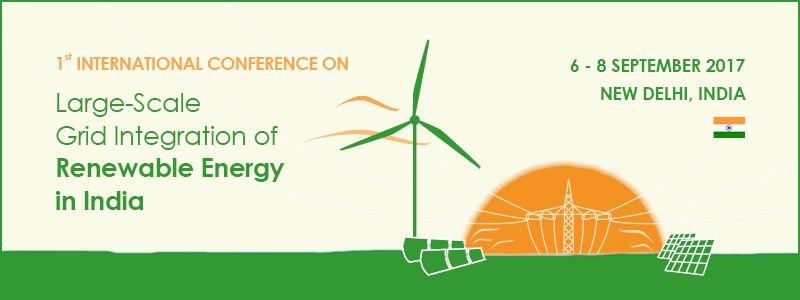Thank you for your Participation!
The 1st International Conference on Large-Scale Grid Integration of Renewable Energy in India, held from 6 to 8 September 2017 in New Delhi, was successfully concluded with more than 350 participants from 18 countries and a total of 113 oral and 33 poster presentations.
The conference organizers Deutsche Gesellschaft für Internationale Zusammenarbeit (GIZ), United States Agency for International Development (USAID) and Energynautics, Germany would like to thank all speakers, poster presenters and participants for their valuable contributions.
Download
The papers of the conference are now available on this website for download. The presentations and videos will follow soon. Please check back regularly!
About the Conference
The 1st International Conference on Large-Scale Grid Integration of Renewable Energy in India was endorsed by the Indian Ministry of New and Renewable Energy as well as the Indian Ministry of Power and organized by Deutsche Gesellschaft für Internationale Zusammenarbeit (GIZ), United States Agency for International Development (USAID) and Energynautics, Germany.
The Government of India has set the very ambitious goal to install 175 GW of renewable energy generation capacity by 2022. Grid integration thus becomes a very critical challenge to successfully accomplish this target. This international conference aims to connect international experts and Indian stakeholders to jointly discuss the latest technological, regulatory and conceptual developments in this field.
The Conference provided an International Forum to:
- Discuss technical and economic issues of the large-scale integration of solar and wind power including the recent advances in transmission technologies (AC and DC)
- Discuss worldwide project experiences
- Discuss innovative ideas and present results from ongoing research
- Stimulate interdisciplinary thinking between renewable energy and power transmission and distribution industries, as well as universities
- Identify subjects requiring more research efforts

